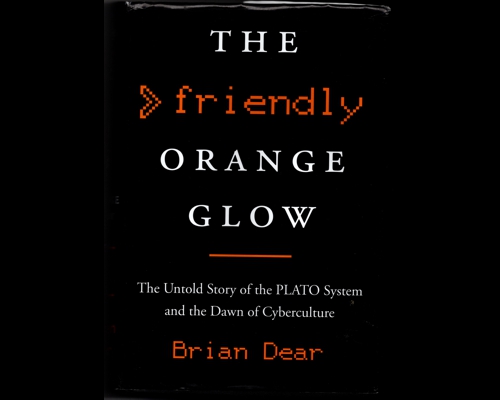I read it because I wanted to know more more about the virtual worlds developed for it (Avatar and its peers), although it turned out there was only a single chapter (pages 286-305) on the topic and a multi-player Star Trek combat-and-trading game called Empire was more famous than any of them among PLATO users.
The book is in three parts. The first part is about the beginnings of PLATO; the third part is about its end. I found both of these interesting for their own sake, dealing as they did with a bunch of very smart people performing miracles of software and electrical engineering to deliver an educational computer system way ahead of its time, followed by the decline that happened when time caught up with it and then went sailing past.
The middle part describes applications that PLATO's bright and motivated users created. Some of these predate what happened years later outside of the PLATO walled garden. In several cases, what the rest of the world ended up with actually came directly from PLATO: Lotus Notes, Wizardry and Freecell are examples. In other cases, though, what we got was independently-invented elsewhere (despite what PLATO revisionists might wish): email is an example, along with some close-but-no-cigar systems such as Usenet. Just because an idea was implemented somewhere first, that doesn't mean we owe anything to it today (this is why we're not playing video games because Tennis for Two lived for three days on an oscilloscope in 1958).
What came across most vividly from the book was the wonderful go-getting attitude that the engineers and programmers had, along with their willingness to allow clever people to do clever things regardless of their age or background, merely because they enjoyed it. It's the sort of open culture that gets amazing things done, but isn't scalable. I recognised flashes of it from my own time as an undergraduate at Essex, where the doors to the future had been cracked open and we could walk through them into wild, untamed but beautiful territory. These periods don't exist in history very often, but when they do it's incredible to be a part of them.
The book is something of a labour of love, very well-researched and well-written. Even the decision to print it on deckle-edge paper is considered, giving it a kind of "historical but authentic" feel. I left it with a feeling of regret that I could never have been part of PLATO, admiration for what those who were part of it accomplished, and respect for its legacy. I wouldn't say that virtual worlds were part of that legacy, but PLATO was so much more than games that it doesn't really matter.
